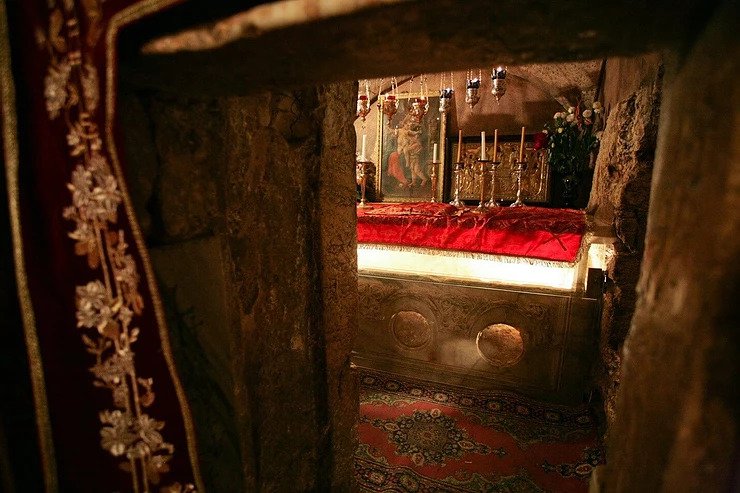“Neither the tomb, nor death could hold the Theotokos, / Who is constant in prayer and our firm hope in her intercessions. / For being the Mother of Life, / She was translated to life by the One who dwelt in her ever-virginal womb.” (Kontakion-hymn of the Dormition of the Theotokos)
Just as St. Peter said about the Source of Life, our risen Lord, that “it was impossible” that He should be “held” by death (Acts 2: 24), we sing in the above-quoted hymn that death “could not hold” the Mother of Life. As one with a unique role in Salvation History, the Mother of God also has a unique, personal “salvation history”: She experienced Pentecost “before” anyone else, at the Annunciation (cf. Lk 1: 35, “The Holy Spirit will come upon you…”), and the Holy Virgin also received the grace of bodily resurrection “before” the completion of time, having been “translated to life” shortly after her repose “by the One who dwelt in her ever-virginal womb.” In the one “Full of Grace,” in the Mother of God, the usual “laws of nature are vanquished” (νενίκηνται τῆς φύσεως οἱ ὅροι / побеждаются естества уставы), as we chant in Ode 9 of the Canon of Dormition. Because grace turns things around, making the impossible possible; making the sorrowful an occasion for joy; and even making the “tomb” of the virginal womb a source of life.
Today, as those of us on the “New” Calendar celebrate the Dormition of the Theotokos, and those of us on the Older Calendar enter the second day of Dormition Fast, I say thank you to the Blessed Among Women. Thank you, for this great feast of Dormition, at which even a “death,” your “death,” is a celebration of Life. Thank you, our one-and-only Mother of Life, for showing us this radical, transfigurative power of God’s grace, which springs life even from our potentially death-bringing places. Help me to turn things around today, as I choose to rely not on my own “power,” but on the transfigurative power of God, in Whom all things are possible. “By your prayers you deliver our souls from death.” (Troparion-hymn of Dormition)






